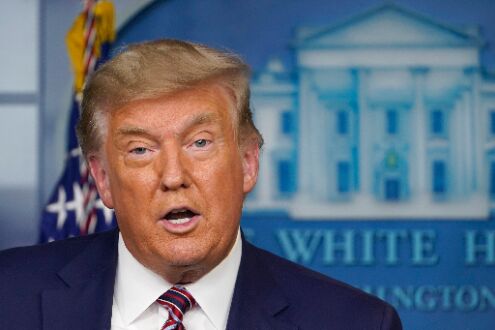Who's to blame?

On commenting on his decision to ban Trump on Twitter, Jack Dorsey emphasised that he and his team were aware of the monumental decision they were about to make. There were frantic phone calls and emotional video conference meetings, all with the weight of the world pressing down on the company and its employees. Everyone was reasonably aware that they were about to make history at a historical time, that their actions would be scrutinised in minute detail, that Twitter could pay a heavy price for wading into the political free speech debate with such momentum. Dorsey noted that this was not a moment of celebration for him, for his company and indeed for all social media platforms. This was a moment that went against the ideals of free internet. This decision to ban Trump permanently, while necessary for the safety and sanity of a nation tearing itself apart from hate, was one that will set off a cascading domino effect that does not end well for the idea of free web discourse. For Twitter and the world, the banning of Trump was a true crossing the Rubicon moment. It was the time when the world, for the first time, witnessed the true might of a social media giant that decided to take action. In an instant, the account of Donald J Trump, the President of the United States was silenced. In one stroke, Trump's way of communicating with his 80 million or so followers was snapped.
It is important to not understate how hard Twitter's ultimate decision was. In all fairness to the company, not acting at the moment would have not done them any favours. Indeed, it is almost certain that the company would have faced greater backlash if it had decided to not act or not go far enough when they decided to act. What faces Twitter and social media in general is a world that is confused and wary. Few can say that the event that forced Twitter to act was not reprehensible enough to merit such action. Regardless, Twitter will be held responsible by those who see the absolute power of social media as a threat to traditional power structures. Yes, right-wing populist governments worldwide have naturally come out with criticism of Twitter's arbitrary use of its power, the power they say was not earned by some sort of electoral mandate. But, equally, so-called bastions of free speech and political moderation like the EU have also shown clear concern over the move made by Twitter. Leaders like Angela Merkel have called the move troubling in that Twitter decided to infringe on one of the fundamental rights of any democracy, much less a matter of political free speech. It does not really bear noting that Merkel is not a fan of Trump and has otherwise condemned the actions of the President.
On the other end of the spectrum, there are obviously those who see the move by Twitter as a welcome move and have raised the hope that this move will indeed be a precedent to a larger content policing and higher responsibility by the social media companies. Many have taken to wondering if Twitter's actions would inspire similar actions against other world leaders and public figures who have used the various social media platforms to facilitate campaigns of misinformation and hate. In particular, Trump's 'shocking' act of apparently inducing his supporters to take up arms to change his electoral loss has inspired worrying comparisons with Bolsonaro and his online rhetoric. Many see similarities between how Bolsonaro frames his opponents as enemies of the state and how Trump also uses the politics of 'othering'. Critics of Bolsonaro have raised fears that the 'Trump of the tropics' could take a page from the playbook of the original and march his armed followers to overturn any election result that is unfavourable to him. Unlike the US democratic tradition which has been built up over two centuries, Brazilian democracy is young and fragile. Bolsonaro has always been an openly strongman politician who is not above glorifying the recent military dictatorship past of Brazil.
This brings the argument back to the core point. Free speech is troublesome but the alternative is clearly worse. Similarly, moderating free speech is also extremely troublesome but not doing it has clearly detrimental effects. It is a messy swamp that someone needs to wade into. In criticising Dorsey and Twitter, most leaders ignore the fact that Dorsey did what governments and systems of governance should have been prepared to do before this situation came to a boiling point. Let us not forget that Twitter built itself on amplifying the voices of public figures and affording them liberties with free speech that other users did not have. Someone had to act. Someone must continue to bear the burden of acting against those who misuse free speech. Despite the widespread wistful thinking, the era of the right-wing populist is not waning, it's in a lull.



